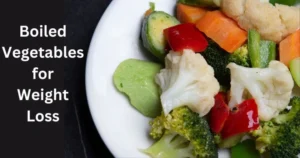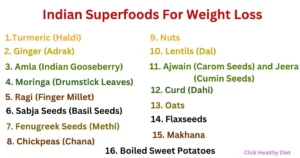Introduction
Poha or beaten rice is a popular traditional breakfast in India. It is well known for its delicious taste and its nutritional value. It’s frequently asked, “Is poha good for health”. The answer is absolutely yes! Poha is a rich source of fiber, iron, and essential vitamins that promote digestion, improve energy levels, aid in weight loss, and support heart health.
Poha is prepared from whole rice, parboiled, and flattened to obtain the desired thickness. Poha is cooked in various ways, roasting, frying, or soaked and seasoned with spices and vegetables as a quick and easy breakfast or snack.
The best part is that Poha is easy to prepare, and a nutritious option for all age groups. Let’s delve into the nutritional value and various health benefits of poha…
Read More: 9 Benefits of Eating Soaked Almonds Empty Stomach
Poha Nutritional Value per 100 g
Here is the nutritional value of poha per 100 grams as per the USDA.
| Nutrient | Amount |
| Energy | 333 kcal |
| Protein | 6.67 g |
| Carbohydrate | 76.67 g |
| Fiber | 6.7 g |
| Iron | 1.2 mg |
| Sodium | 67 mg |
Poha also contains vital nutrients like B vitamins, phosphorus, potassium, zinc, and magnesium that support overall health.
Is Poha Good For Health
Want to know if poha is nutritious? Discover why it can be part of your healthy eating plan. Is Poha Good for Health? Yes! Poha is a great choice for your optimum health. It is packed with carbohydrates, fiber, protein, iron, and essential B vitamins that can improve digestion, increase energy levels, and help manage sugar levels.
Its low-fat content and fiber make it suitable for heart health. Consuming poha can help you provide sustained energy and maintain stable blood sugar levels.
Due to its high nutritional value, poha provides you with several health benefits.
Health Benefits of Poha
Explore 6 prominent reasons why is poha good for health. This dish can be a smart choice for a healthy lifestyle.
Incorporating poha as part of a balanced diet can provide vital nutrients that contribute to overall health and well-being. However, poha should be consumed in moderation and balanced with other food sources of protein, vitamins, and minerals to meet your daily nutrient requirements.
1. Is Poha Good for Gut Health?
Poha is a good source of dietary fiber that helps in digestion and improves bowel movements, making it regular. It has the potential to restore the beneficial microbiome and improve the intestinal microflora that aids digestion and boosts immunity.
2. Controls Sugar Levels
In research, a study was done on poha consumption and its glycemic control in type 2 diabetes mellitus patients. Daily intake of poha was found effective in controlling hyperglycemia due to the slow release of glucose from the body. However, more studies and research are required.
If you are suffering from high blood sugar levels, consult your doctor before adding poha to your diet.
3. Boosts Energy Levels
Poha is a source of B vitamins, fiber, protein, and carbohydrates. These nutrients have the potential to provide energy and optimize the daily functions of the body.
4. Rich Source of Iron
Poha is a source of iron. Iron boosts immunity, increases energy levels, and plays a vital role in the formation of hemoglobin which carries oxygen to all the parts of the body.
Iron-rich food can enhance your sleep quality, improve cognitive function, and prevent fatigue. Iron can be beneficial for pregnant women and growing children, preventing iron deficiency.
5. Poha Benefits for Skin
Poha is a good source of B vitamins, including vitamins B1, B2, and B3, which are essential for the growth of cells and tissues. These vitamins promote skin health by reducing wrinkles and enhancing skin tone.
B vitamins give radiant and glowing skin and help you with skin conditions like acne, eczema, and dermatitis.
6. Weight Loss
Poha is a good source of fiber, protein, carbohydrates, and other essential nutrients that are beneficial for weight loss.
Poha is very filling and keeps you satiated for longer, preventing munching on extra calories.
Poha, when taken in moderation and balanced with more vegetables and proteins, can help you lose weight.
100 to 150 grams of poha is good enough to boost your energy levels, keeping you active throughout the day. If you are on your weight loss journey be mindful while eating poha, portion control is the key to positive results.
Do not overeat poha, or it may give rise to weight gain.
Precaution
Poha is usually considered safe for individuals. Yet, more evidence is required to ensure its efficacy for pregnant women and elderly patients. If you suffer from any medical condition, consult your health expert before including poha in your diet.
Disadvantages of Eating Poha
Poha, when consumed in moderation as part of a balanced diet, can provide you with multiple benefits. However, overeating poha is not recommended. If you are overconsuming poha, it may result in abdominal discomfort and weight gain, and impact negatively for diabetic patients.
Tips for Making Poha Healthier
Here are the tips to make poha healthier and more nutritious.
- Opt for thicker poha as it retains more nutrients compared to thin poha.
- Poha contains a good amount of carbohydrates. To add nutritional value to poha, it should be balanced with protein and veggies.
- To enhance the nutritional values of poha, try adding sprouts, paneer, and soya chunks to poha to balance protein in your food, or add hard-boiled eggs as a side dish.
- Use healthy and minimal oil to prepare poha.
- Add sufficient vegetables like carrots, beans, bell peppers, and peas to add more fiber, vitamins, and minerals to the dish.
Conclusion
In conclusion, the article “Is poha good for health ?” indicates that flattened rice is a versatile and nutritious food that offers several health benefits to your body.
- Poha is naturally gluten-free and can benefit those who are gluten intolerant.
- Poha is low in fat and a good source of fiber and protein making it favorable for your health goals. The carbohydrate-rich poha provides you with sustained energy, and its fiber content supports gut health. Poha can be an excellent choice for a balanced and healthy diet.
- Regular intake of poha can be beneficial for weight loss goals, improve digestive health, aid in treating anemia, and improve energy levels.
- The B vitamins found in poha enhance skin health and cognitive functions of your body.
- However, it’s important to note that while poha offers nutritional benefits, it should be consumed in moderation and balanced with various other nutritious foods like vegetables, protein sources, and nuts to meet your daily nutrient requirements.
FAQ’s
Q1. Is poha good for breakfast?
Ans: Yes! Poha can be a good choice for breakfast. It offers various nutritional benefits and optimizes your energy levels, keeping you full and satiated for longer. It keeps you active and energetic throughout the day.
Q2. Is poha good for dinner?
Ans: Yes! Poha can be taken for dinner. I would recommend having it at least 2 hours before bedtime so that it gets sufficient time to digest before sleep. Be mindful of portion control and do not over-consume.
Q3. Is poha good for weight loss?
Ans: Poha can be beneficial for weight loss due to its low-fat content, protein, fiber, and vital nutrients, which help to keep you full and satiated for longer, reducing hunger pangs and thereby managing calorie intake. Poha, when taken in moderation as part of a balanced diet along with additional protein sources or vegetables can support weight loss goals.
Q4. Is poha good for weight gain?
Ans: Poha when consumed in moderation as a part of a balanced diet is unlikely to cause weight gain. However, if poha is prepared with too much oil, added with high-calorie toppings, or over-consumed it may give rise to weight gain.
Q4. Is eating raw poha good for health?
Ans: Eating raw poha may give rise to abdominal pain or discomfort. Prefer eating soaked, roasted, or cooked poha for easier digestion and improved overall health.
Q5. Is red poha good for health?
Ans: A study reveals that red rice poha provides immediate energy to our system, regularizes bowel movements, and stabilizes blood sugar levels. Red rice flakes may prevent coronary disease and allergies, and help in digestion preventing constipation among adolescents.
Q6. Is poha good for weight loss in dinner?
Ans: Generally poha is consumed in dinner. However, if you are targeting weight loss I would recommend taking poha in the breakfast. Poha predominantly contains carbohydrates so better to consume in the daytime. But if you like to eat poha for dinner then balance it with half a portion of vegetables and take it in moderation.
Q7. Is poha good for diabetes?
Ans: Some of the research has shown that poha is effective in controlling hyperglycemia. However, more data is required for further research.
Reference
Poha consumption and Glycemic control
A Research On Reminiscence and Acclimation of Oryza Sativa Flakes Snacks Among Adolescents
Nutrient changes and functional properties of rice flakes prepared in a small scale industry
The Health Benefits of Dietary Fibre
https://www.ncbi.nlm.nih.gov/pmc/articles/PMC7589116/
Nutritional value of poha
https://fdc.nal.usda.gov/fdc-app.html#/food-details/472148/nutrients




